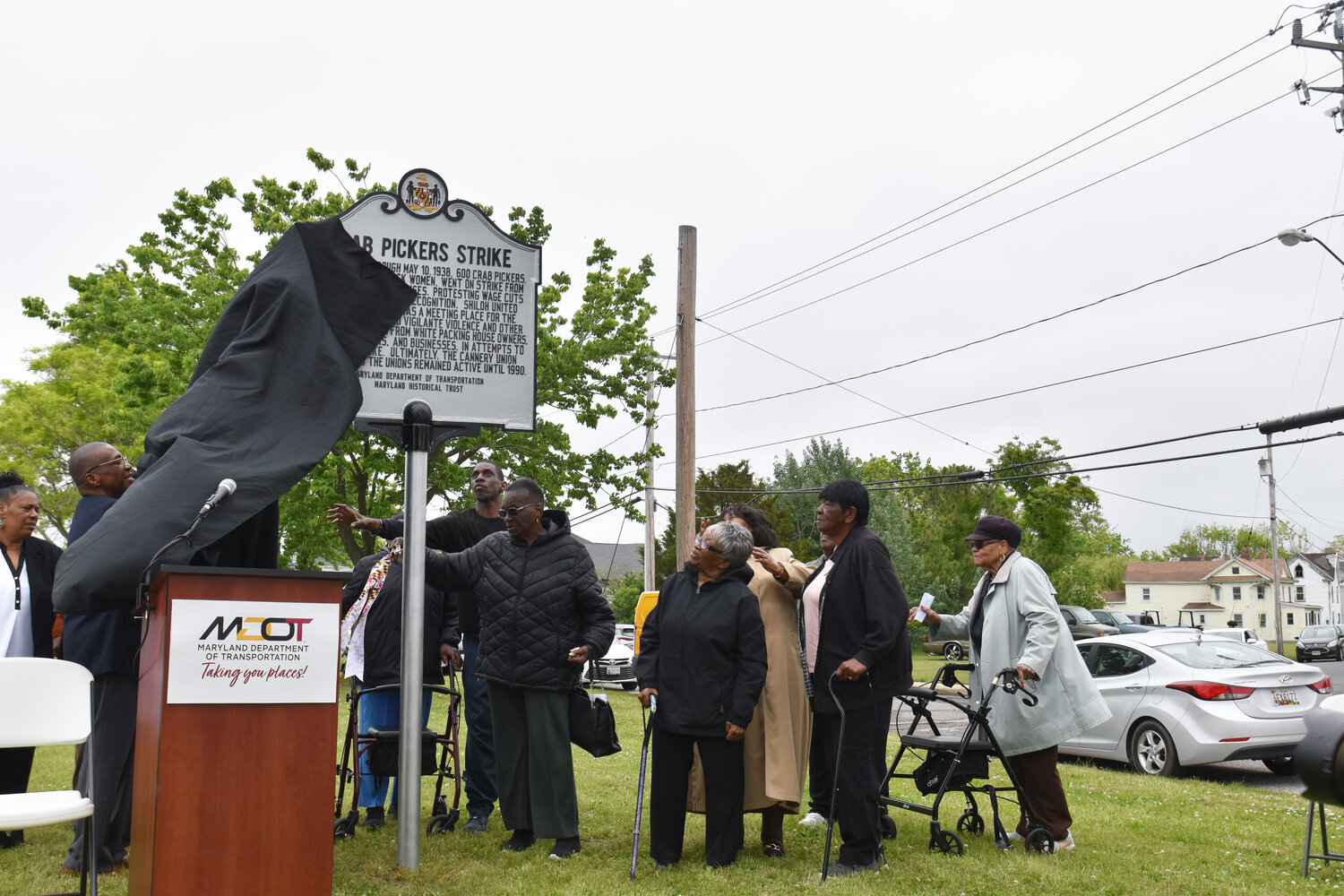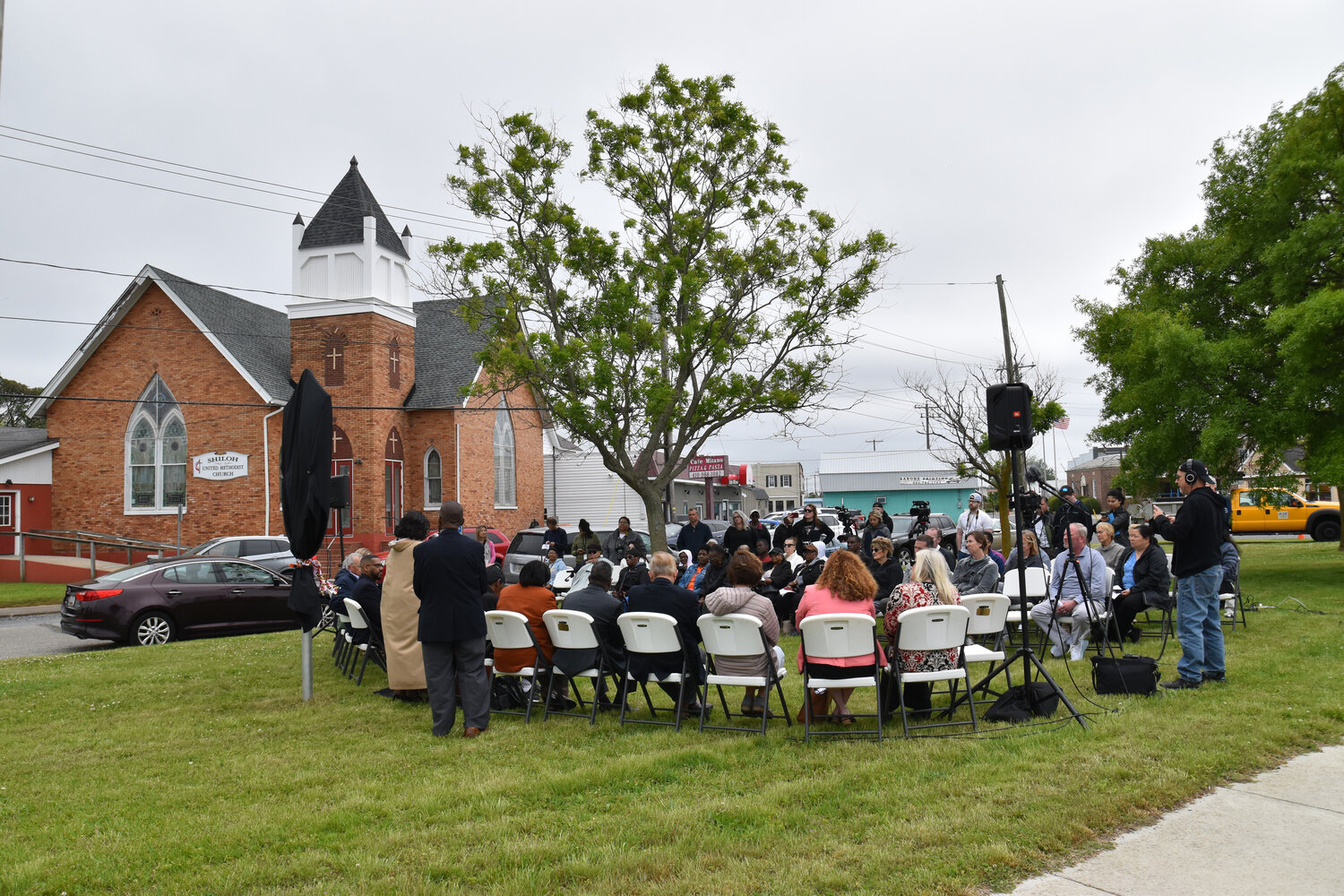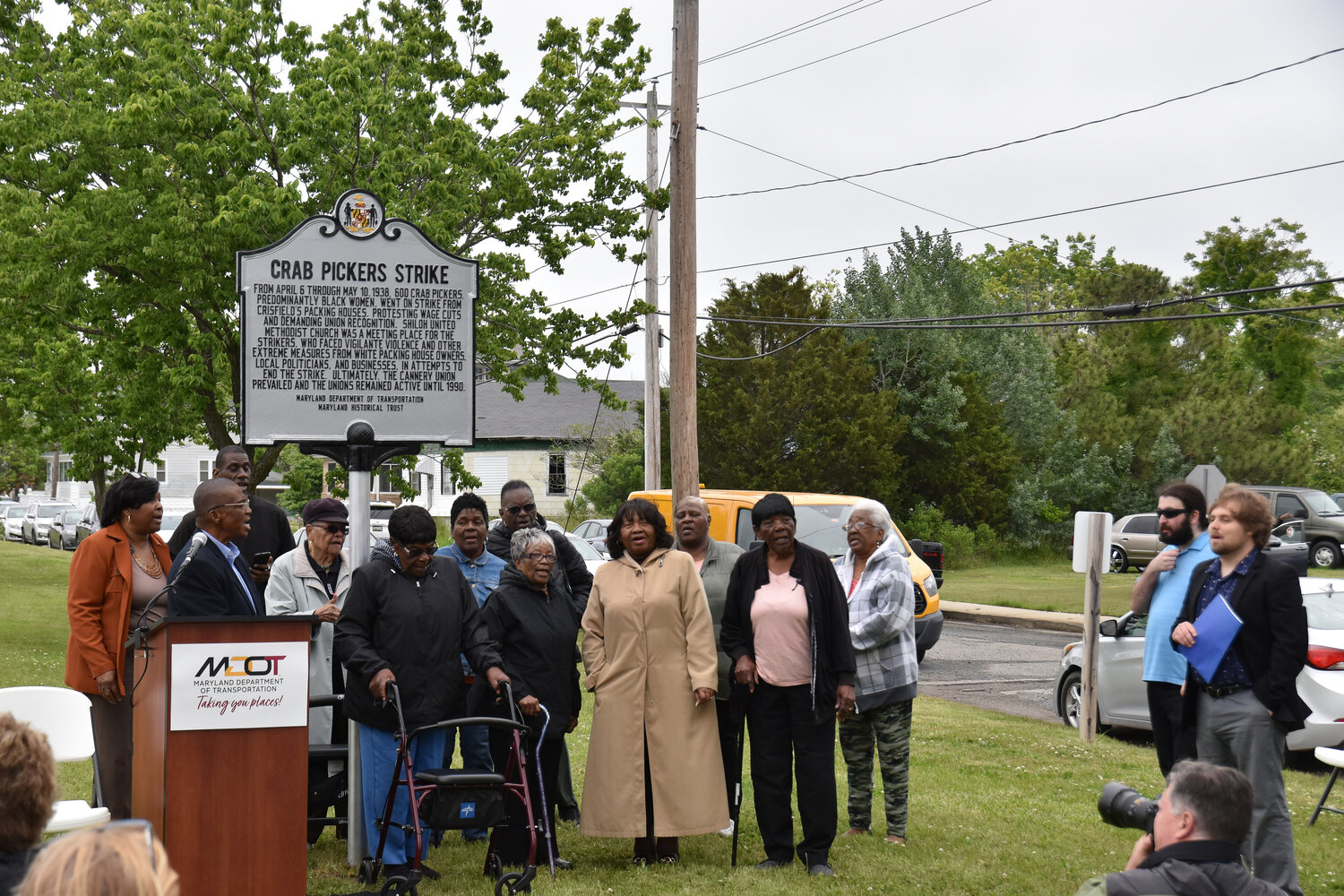Crab Pickers Strike of 1938 remembered through state historical marker
CRISFIELD — Members of the Holy Pickers Union Center, in conjunction with Shiloh United Methodist Church, hosted a celebration Friday, May 10 across from the church for the formal unveiling of …

You must be a member to read this story.
Join our family of readers for as little as $5 per month and support local, unbiased journalism.
Already a member? Log in to continue. Otherwise, follow the link below to join.
Please log in to continue |
Crab Pickers Strike of 1938 remembered through state historical marker
CRISFIELD — Members of the Holy Pickers Union Center, in conjunction with Shiloh United Methodist Church, hosted a celebration Friday, May 10 across from the church for the formal unveiling of a new roadside historical marker for the 1938 Crab Pickers Strike.
The marker commemorates the 600 crab pickers, predominantly African American women, who on April 6, 1938 went on strike from Crisfield packinghouses to protest wage cuts and to demand recognition of their union. Despite facing violence, including the burning of their union organizer’s car and home invasions of strike leaders the women persevered for five weeks.
“I'm honored to join the celebration of this new marker for the 1938 crab picker strike,” MDOT Assistant Secretary Tony Bridges said. “Maryland’s roadside historical marker program has been informing travelers about our shared history for more than 90 years, and the struggle these brave women faced and their valuable contributions to their communities and the state’s seafood economy is an important element of that history.”
The marker unveiling date and location were significant. Eighty-six years ago on that day the walkout ended when packinghouse owners signed an agreement restoring the women's pay rates that had been reduced to 5 cents per gallon of crab meat to the 35 cents per gallon it had been before the strike. They also agreed to recognize the cannery union.
Shiloh United Methodist Church served as a meeting place and safe haven for the strikers.
“This historical marker is a tribute to the legacy of the African American women who are the backbone to the economy and seafood industry in Crisfield,” said the Reverend Emanuel Johnson, pastor of Shiloh United Methodist Church.
Holy Pickers Union Center, a group of active and retired crab pickers along with Shiloh United Methodist Church, nominated the site to the Maryland Roadside Historical Marker program, which educates the public on Maryland history. The Maryland Department of Transportation, in partnership with the Maryland Historical Trust, manages the program.
The history of the strike researched by Craig Simpson was read by the Rev. Doretha Whittington, and members of the Shiloh Choir and Holy Pickers Union sang. There were remarks by state and local elected leaders including Mayor Darlene Taylor who cracked crab claws starting at age 9 and worked with them even during the summers while in college.
She said her mother picked crabs her entire life, and her father cooked them “as far back as I can remember.”
She praised the team that worked on the sign for two years, even being told no along the way, but like the women who went on strike, “they were not deterred and they did not give up.”
“So this day and this marker are so significant. To preserve our legacy and our heritage of our ancestors, and to remember how hard they struggled just for dignity and respect that’s due for everyone.”
She said some may think this story is one about race, but instead it’s one about resilience and perseverance, “and all the things that make this community so great.” “Today I’m grateful for that sacrifice, and I stand here as proof positive that that sacrifice was not in vain.”
It was because of this industry that Crisfield became known as the Crab Capital of the World and “today we stand on their shoulders and I am so grateful for the work that everyone’s done to honor their sacrifice.”
Hazel Cropper, at age 86, was born when her mother was on strike, saying her whole family was involved with the seafood industry. And it too became her career, earning the nickname Hurricane Hazel and now a retired world-champion crab picker who occasionally demonstrates this skill.
She is also an example of what Councilwoman LaVerne Johnson would say when asked about seafood workers, that those in this business earned enough to buy cars and homes — although she acknowledged not having the talent herself “so I had to find a job somewhere else.”
“I ate too much of what I was trying to pick,” she said.
Following the program guests were invited into the church hall for refreshments. Shiloh, located on North Fourth and Locust streets, has another sign on display next to its former steeple bell outside denoting a visit to Crisfield in 1961 by members of the Civic Interest Group testing the extent of segregation in the hometown of then-Gov. J. Millard Tawes.
There are two other state markers in the city, one for Gov. Tawes in the municipal park across the dual highway from the crab pickers marker and one about the history of the city at Main and Ninth streets.











